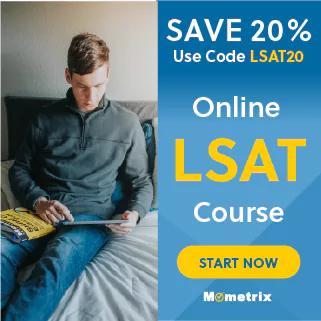Nearly all American Bar Association-approved law schools require their applicants to take the LSAT. To help you prepare for the Logical Reasoning section of the LSAT, this page contains everything you need to know, including what topics are covered, how many questions there are, and how you can study effectively.
Click “Start Test” above to take a free LSAT Logical Reasoning practice test!
What’s on the LSAT Logical Reasoning Section?
This section of the test provides short passages that you must read and then answer one or two questions about. These passages, or arguments, are taken from sources including:
- Magazines
- Newspapers
- Scholarly publications
- Informal discourse
- Advertisements
These mirror legal reasoning both in their complexity and types of arguments. The questions will test your ability to evaluate, analyze and complete these arguments. These skills are essential to law and legal analysis as a law student.
You will need to identify parts of arguments, deciding what is most important and how any evidence presented in the future may affect it. You will need to be able to use arguments as a persuasion tool and to resolve contrasting positions.
You will not be expected to have prior knowledge of certain terminology or the topics in the presented passages. Your job will be to understand and evaluate the reasoning found in them.
LSAT Online Prep Course
If you want to be fully prepared, Mometrix offers an online LSAT prep course designed to give you everything you need to succeed!
Here’s what you’ll find in the LSAT course:
- 30+ Review Lessons Covering Every Topic
- Over 600 LSAT Practice Questions
- 250+ Digital Flashcards
- Money-back Guarantee
- Mobile Access
Everyone learns differently, so we’ve tailored the LSAT online prep course to ensure every learner has what they need to prepare for the LSAT exam.
Click below to check it out!
FAQs
Q
How many questions are on the LSAT Logical Reasoning test?
A
There are between 24 and 26 multiple-choice questions on this test.
Q
How long is the LSAT Logical Reasoning test?
A
The time limit for this test is 35 minutes.
Q
What is the passing score for the LSAT Logical Reasoning test?
A
There is no set passing score for this test.
LSAC does not review or endorse specific test preparation materials, companies, or services. LSAT (including variations) and LSAC are registered trademarks of LSAC.


